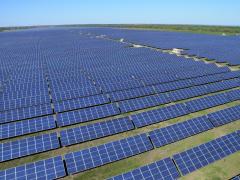Cape Town’s Mayoral Committee Member for Economic Growth, Alderman James Vos; Mayoral Committee Member for Energy, Councillor Beverley van Reenen; and Cape Town Tourism CEO, Enver Duminy, hosted local tourism businesses for an engagement on the current load-shedding situation and what steps the City is taking to mitigate the effects on the industry.
The event saw the Mayoral Committee Members present their projects and plans to operators who also shared how the energy crisis has affected them.
‘Eskom’s load-shedding has a devastating impact on businesses, industries and the economy at large. From my daily engagements with businesses in factories and boardrooms, I’ve seen how their production lines are affected and there have been tough conversations around how they cope. Often, they are forced to divert budget from areas such as hiring more staff to taking measures to keep the lights on. Thankfully, the City of Cape Town is able to limit load-shedding in its supply areas by building up reserves garnered from the Steenbras Hydro Pumped Storage Scheme,’ said Alderman Vos.
Councillor Van Reenen added that the City’s energy supply plans have hit several important milestones.
‘The City is taking proactive steps in the short to medium-term to mitigate up to four stages of Eskom’s load-shedding under the Energy Mayoral Priority Programme. One of our latest initiatives is our largest power procurement tender, which will see the City approach the open market for around 500 MW of dispatchable power. We are on track to go to market on 29 March 2023. Besides bringing more renewable energy sources into our grid, the aim is to build an affordable, reliable and resilient power supply for all Cape Town residents and businesses,’ said Councillor Van Reenen.
Enver Duminy, CEO of Cape Town Tourism, said load-shedding is one of Cape Town’s biggest challenges in attempting to attract tourists and has had a knock-on effect on various tourism sectors.
'There’s no doubt that the sustained and erratic outages have made it close to impossible for our local tourism businesses to plan for disruption, which has taken a dramatic toll. Furthermore, we’re concerned that load-shedding will make prospective visitors less likely to make Cape Town – and South Africa – their destination of choice, and will impact their activities should they visit. The outages are having a significant impact across almost every tourism business, and on our efforts, as Cape Town Tourism, to market Cape Town to global travellers. We remain steadfastly committed to doing everything in our power to attract footfall to our shores and support our members in every way we can.'
The engagement also heard from the City’s Special Business Partner, GreenCape, about their work in boosting the regional green economy. The Economic Growth Directorate provides funding to GreenCape to help the City attract investors in the green economy sector while unlocking the potential of this industry in various fields.
‘With an increased demand for solar panels, we can create job opportunities for the millions of currently unemployed South Africans. One report showed that the solar PV industry alone could create up to 30 000 jobs per year,’ said Alderman Vos.
Councillor Van Reenen also encouraged businesses to take advantage of the City’s plans to start paying cash for power. The incentive is scheduled to be in effect by June.
This was highlighted together with Finance Minister Enoch Godongwana’s announcement that businesses can now reduce their taxable income by 125% of the cost of an investment in renewables. Changes to the Bounce Back Loan Guarantee Scheme ensures solar-related loans for small and medium enterprises.
‘The City is leading in Small-Scale Embedded Generation (SSEG) and we are the first municipal authority to develop a framework for the safe uptake of SSEG. Both residential and commercial customers within the City’s supply areas are able to install grid-tied rooftop solar systems and battery systems as well as other approved technologies, to generate power for themselves and feedback their surplus into our grid for cash (residential later in 2023). The current feed-in tariff is 78,98 c/kWh (excl. VAT) with an added incentive of 25 c/kWh (excl. VAT),’ said Councillor Van Reenen.
Duminy added that CTT was ready to support businesses in navigating the various initiatives.
'We are excited about these offerings and committed to assisting tourism businesses to make the most of them. We’re still in the wake of rebuilding the tourism industry following all the chaos caused by Covid-19, so helping our members to combat their electricity concerns will go a long way to catalysing sector recovery and readiness.'
Alderman Vos said the energy crisis and climate change made it a critically important time to invest in the green economy while helping more Capetonians to secure employment in a new industry.
‘Cost-effective energy efficiency improvements can have positive macro-economic impacts that boost economic activity and lead to increased employment. There has never been a more critical point to make real commitments to the vast energy opportunities of renewables. Investment in these sectors is good for business, people, and the planet, and therefore the City and our partners stand ready to work with industry so that we can make Cape Town the easiest place to do business in Africa,’ said Alderman Vos.













